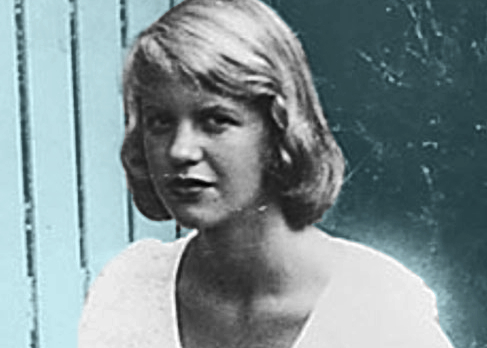
Sylvia Plath and Ted Hughes married in 1956 after meeting at Cambridge, which Plath was visiting on a Fulbright. Their relationship began with mutual literary interest, and from an early stage each worked to promote the other’s work. While a student, the driven Plath told her mother: “I will whip myself onward and upward (in this spinning world, who knows which is up?) toward Fulbright’s, prizes, Europe, publication, males.” In the following letter to her mother, Plath describes the beginning of her (and Hughes’) literary success.
To Aurelia Plath
March 7, 1957
The most blissful thing is your two letters about the Spauldings’ Cape cottage. You don’t know the change that’s come over Ted and me, just dreaming of it. For us, it’s the most magnificent present in the world: a Time and a Place to write! And the Cape is my favorite place in the world. Just the vision of that little spick-and-span kitchen with the refrigerator and stove and the sun streaming in sustains me through the grim plodding of studying masses for exams. And to have a place I know will be such a rest. It is really exhausting to have to “discover” a new town—shops, quiet nooks, etc., and I think the seven weeks on the Cape will be the best start on my campaign to make Ted fall in love with America. He is getting really excited and glad about it now; and I, vicariously, am more than doubly glad to go back and open up its treasure chests to him. He loves to fish, so maybe you and I can accompany him and Warren deep-sea fishing some weekend.
We’d love a party on June 29 and should be marvelously rested from the boat trip. My exams finish about June 1, so I’ll have leisure to pack while Ted goes on teaching right up to the sailing date.
By dint of much typing, I manage to keep 20 manuscripts out continuously from both of us. There was a dead lull for a week after the telegram…
Miraculously, with the publication of a sumptuous new Cambridge-Oxford magazine (which contained two of my poems, right after an article by Stephen Spender, on request from the editor), our fame has spread around Cambridge among the students. Editors of Granta, the Cambridge “New Yorker,” have humbly asked both Ted and me for stuff. I came home after my classes late yesterday afternoon and found a very sweet boy talking to Ted—editor for one of the spring issues. I made coffee and gave them a piece of orange chiffon pie, and we had a good talk. Ted is much more modest than I about his work, so I act as his agent. The next issue of Gemini (the new magazine) in May will carry three poems by Ted and a story and book review by me, and I think Granta may well produce us both. We do love to appear together…The undergraduate magazines are read in London by editors—there are so few university writers—whereas in America, undergrad publications are legion and ignored by higher-ups. I’ve convinced Ted that his book will sell better if people get to read and hear and like his poems first; he is difficult, strong, and overpowering and needs to be read much. So he should publish everywhere he can. I have another little editor coming tomorrow, really a nice fellow, very brilliant, who went to Moscow this year on a student-visit and who translates Russian short stories, etc. (Shall try another Apfelkuchen; I love giving hospitality to intelligent people…)
xxxSivvy
From Letters Home, Sylvia Plath, Correspondence 1950-1963. Edited by Aurelia Schober Plath. New York: HarperCollins, 1975.
FURTHER READING
Listen to this 1961 recording of Sylvia Plath reading her poem, “Tulips.”
What Plath was looking at.
An interview with both Plath and Hughes from the BBC.
The high-power couple turned into a “marriage of myths.”


